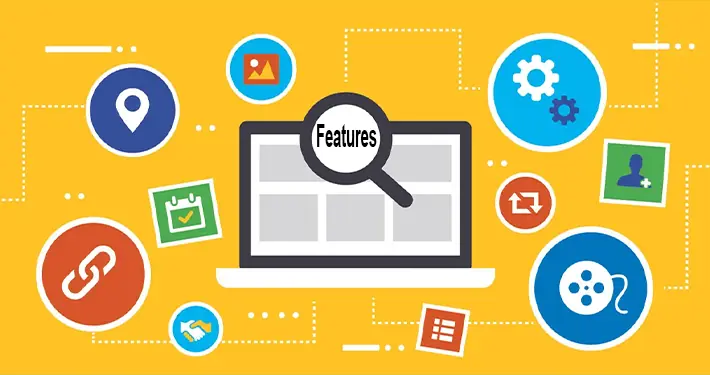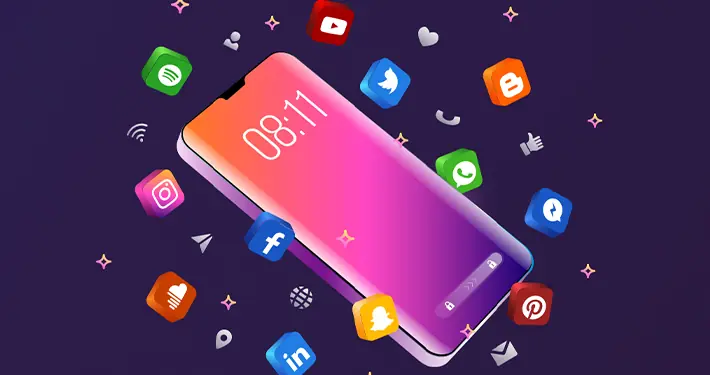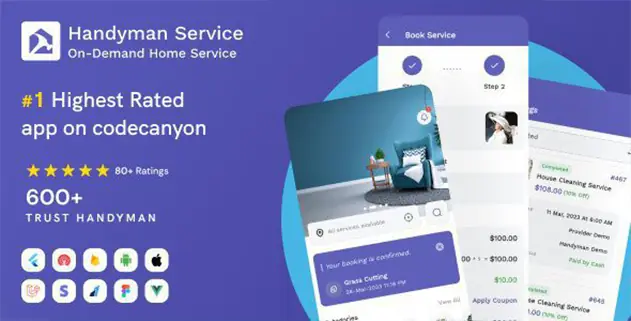Handyman Service 11.4.0 – Flutter App with Complete Solution
Handyman Service system app comes with a Laravel PHP admin panel to have a meaningful insights from the admin dashboard and statistics. Assign multi-roles and permissions like Admin, Service Provider, Handyman, and customers using this app.

Handyman Service 11.4.0 – Flutter App with Complete Solution Features
- Location wise services
- Book Service
- Start- Hold – Resume – Complete Booking
- Cancel – Fail Booking
- Re-schedule Booking
- Make payment
- Give Rating – Review
- Chat with Provider and Handyman
- Add – Update – Delete service
- Add – Update -Delete Multiple Addresses for service
- Add – Update Handyman
- Active – Inactive Handyman
- Active – Inactive Multiple Addresses for service
- View monthly revenue
- View all payments
- Accept – Reject Bookings
- Assign Booking to Multiple Handyman
- Chat with Handyman and User
- Verify Profile
- Location wise services
- Book Service
- Start- Hold – Resume – Complete Booking
- Cancel – Fail Booking
- Re-schedule Booking
- Make payment
- Give Rating – Review
- Chat with Provider and Handyman
What is a Mobile App
A mobile app, or mobile application, is a specialized type of software created for mobile devices, such as smartphones and tablet computers. In contrast to conventional desktop or laptop applications, mobile apps are tailored to leverage the unprecedented reach, portability, touchscreen interfaces, and diverse functionalities of mobile platforms.
Mobile apps fall into three main categories: hybrid, native, and web apps. A native app is a software application developed specifically for one mobile device operating system (OS), while a native and web application can each run on more than one OS.
The Apple App Store was pivotal in popularizing mobile applications, offering a vast array for iPhone, iPad, and iPod Touch users. Now, Google Play Store has overtaken the App Store in terms of the number of available apps. These app stores are home to the world’s iOS and Android apps.

Examples of mobile apps include gaming apps that entertain, productivity apps that make tracking and accomplishing work easier, ecommerce applications, and health-tracking apps to maintain people’s mental and physical well-being.
Users are not the only ones who benefit from applications. More businesses and organizations are building mobile apps to generate more income or scale their operations. These entities develop apps independently, scout for outsourced talent, hire freelancers, or collaborate with app agencies to succeed in their goals.
One key industry that leverages mobile apps for growth is e-commerce. There are many examples of ecommerce companies that have gone mobile. One relevant instance is when MyDeal collaborated with Appetiser Apps to maintain industry competitiveness in the face of user migration from desktops to smartphones.

